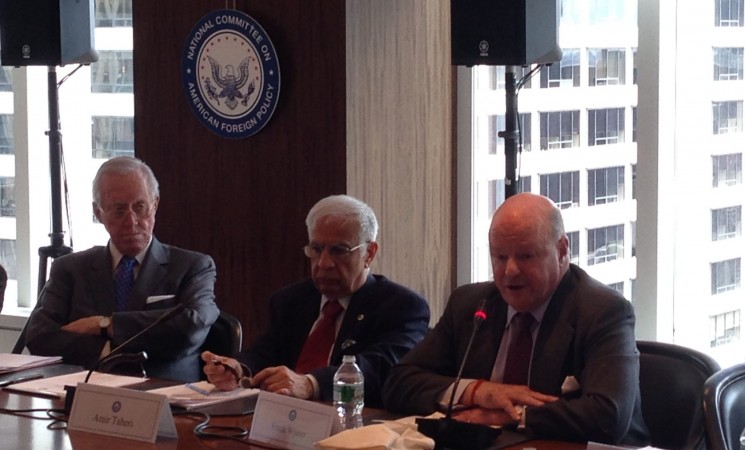On April 23, 2014, the NCAFP hosted a roundtable entitled "The Middle East: New Geopolitical Fault Lines", which featured Mr. Amir Taheri, Mr. Hussain Abdul-Hussain, Ambassador Frank Wisner, Mr. Ali Alfoneh and Ms. Judy Miller.
Excerpt: Many nations of the Middle East—from Morocco to Pakistan—have recently held or are about to hold elections. However, the ballot box and the concept of democracy have come to the Middle East via a path different from that of the nations of the West, where democracy grew from the bottom up. In the Middle East, elections are held and the result is called “democracy.” This illusion sometimes turns into reality but more often not. We do have some good news: the citizenry like voting in elections and are beginning to come to expect them. Afghanistan had record turnout, including many young people and women. Turkey’s voters showed in the recent municipal elections that they can readily discern between religious and political views and programs. On the other hand, Algeria’s electorate was offered no real choice in its latest elections, while the elections in Iraq came under heavy and dangerous pressure from the situation in Syria and pressure from Iran.
Click here to view a PDF of the roundtable transcript.

